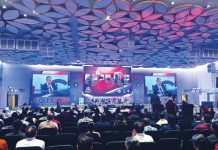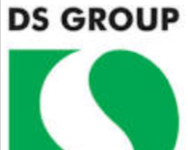Corporate travel is evolving with technology and sustainability at its core. Key trends include integration of personalised travel management platforms, collaboration with TMCs, and efforts to reduce environmental impact.
By Janice Alyosius
Technology has become a cornerstone of modern corporate travel, streamlining processes and enhancing efficiency. From booking tools to real-time monitoring, technology is reshaping how organisations manage travel programmes. “Technology has elevated the corporate travel experience, while ensuring cost-efficiency,” Vaishnavy, Travel Lead, APAC & MEA, Ford Motor Company, said. She highlighted examples such as mobile applications for hotel check-ins, Travel Management Company (TMC) apps, and online booking tools.
Adding to this, Ankush Bindra, Category Lead, Mobility Services, Siemens, observed, “Travel Management platforms offer personalised options, automate processes, save time, for travellers and managers. Real-time monitoring also ensures safety and helps address disruptions swiftly. It also helps in addressing our duty of care towards our travellers. Data analytics enable cost control and better decision-making for future travel.”
With the belief that technology has revolutionised the corporate travel experience Mritunjaya Chandra Mohan, Senior Manager, Corporate Travel, Palo Alto Networks, said, “From seamless bookings to efficient expense management, technology has integrated processes, making business travel more efficient and enhancing the traveller’s overall experience.”
Investing in technology
When it comes to technology investments, organisations often rely on a combination of internal resources and TMC expertise. “It is a mix of both,” said Vaishnavy. She elaborated, “We have invested in tools such as expense management solutions, while relying on our TMC for other advancements, based on market trends.” Similarly, Bindra highlighted the strategic balance Siemens has achieved. “We have implemented online booking tools and real-time monitoring internally. At the same time, our TMC support us with optimising travel policies and providing valuable insights,” Vaishnavy explained.
Meanwhile, Mohan emphasised the importance of selecting TMCs based on their technological capabilities. “Our organisation invests in technology, and depends on TMCs to enhance processes and efficiency. It is a collaborative approach that drives success,” he noted.
While highlighting the evolution of corporate travel management over time with the use of technology, Ajaay Kapur, a research scholar said, “Technology is crucial in enhancing customer experience, optimising costs, and increasing productivity in corporate travel. The shift from manual processes to tech-based systems, summarised by the ‘PPT model,’ highlights this evolution. Today, self-booking tools, AI, and data analytics streamline workflows, improve compliance, and ensure cost-effective, efficient travel management.”
Overcoming challenges in technology integration
Despite its advantages, technology is not without its challenges. Reporting inefficiencies, pricing discrepancies, and integration gaps remain areas of concern for many organisations. “One of our biggest challenges is consolidating pre-and post-travel costs on a single dashboard,” she averred. Stating about how they are addressing this challenge, Vaishnavy highlighted, “We are addressing this with API integrations and advancements in reporting technologies.”
Bindra pointed out technical limitations in online booking tools, especially around cache-related pricing discrepancies. “Our TMC is working on customised solutions, such as integrating Goods and Services Tax (GST)-related platforms to enhance compliance and savings,” he explained. For Mritunjaya, resolving technology-related gaps requires close collaboration. “TMCs often provide workaround solutions for challenges. By highlighting our concerns and working together, we have managed to overcome many hurdles,” he said.
Role of direct suppliers
As airlines and hotels adopt technology-driven booking systems, organisations navigate the resulting benefits and challenges. “The integration offers improved customer experience, better data insights, and greater transparency,” Vaishnavy said. “However, technical glitches and the loss of personal touch in an automated environment remain drawbacks,” she added.
Ankush stressed the importance of compatibility with corporate travel programmes. “Direct suppliers need to ensure their technology aligns with TMC-managed systems. Duty of care is paramount, and we do not allow employees to book directly with airlines or hotels,” he said. While technology brings efficiency, integration remains key, Mritunjaya asserted. “Most suppliers are improving their systems, but ensuring smooth collaboration between corporates, TMCs, and suppliers is critical,” he added.
Corporate travel has significantly benefited from technology, enhancing the travellers’ experience, while ensuring cost efficiency. One of the industry experts, Mubashar Ahmed said, “Technology has enabled us to manage the global travel programme remotely, focusing on usage of Online Booking Tool (OBT) and self-service models.” They have made indirect investments through TMCs, acknowledging the limitations of travel modules, while also encountering challenges such as New Distribution Capability (NDC) content gaps. With technology integrations from suppliers such as airlines and hotels, Mubashar stressed on the need for compatibility with TMC-managed travel programmes. He recommended to uphold the importance of duty of care, not allowing direct bookings by employees.
Driving sustainability in travel programmes
Sustainability has emerged as a key focus for corporate travel programmes, with organisations striving to reduce their environmental impact. “Our current efforts are in the early stages,” Vaishnavy said. She elaborated, “We are raising awareness and collecting baseline data from suppliers to benchmark our progress.”
Siemens has taken proactive steps, implementing Electric Vehicles (EVs) for employee ground transportation and integrating emission tracking into booking tools. “We also assess our partners’ sustainability practices to encourage greener travel options,” Bindra said. For Palo Alto Networks, sustainability starts at the Request For Proposal (RFP) stage and extends to quarterly reviews. However, Kapur shared, “We have adopted digital business cards and itineraries to reduce paper waste and online events, directly cutting transportation emissions. We are tracking energy consumption and waste to identify opportunities for improvement.”
Learnings from 2024 & expectations for 2025
Reflecting on this year, leaders agreed that technology and sustainability have redefined corporate travel priorities. “Key learnings include leveraging data analytics and enhancing traveller safety,” Vaishnavy said. “In 2025, we plan to integrate AI, personalisation, and sustainability into our programmes while managing costs and risks,” she added.
Bindra anticipated adoption of hybrid MICE events. “We will see a continued focus on sustainability and personalisation, with technology playing a central role,” he said. Mohan foresaw stabilising costs and eco-friendly MICE events gaining prominence. “Green venues and sustainable catering will become the norm,” he said.
Highlighting the importance of technology in improving efficiency, Kapur said, “Digital tools have streamlined booking and communication, enhancing the travellers’ experience.” For the new year, he expected focus on cost optimisation and sustainability, with ESG standards becoming central to corporate travel and planning for MICE
events. “The integration of advanced travel management platforms will be crucial in driving cost control and sustainability,” he added. Organisations are investing in collaborative strategies with TMCs, integrating advanced tools, and adopting eco-friendly practices. In the New Year, the travel industry leaders will focus on creating more efficient, personalised, and sustainable travel programmes.
Travel Management platforms offer personalised options, automate processes, save time for travellers & managers
Self-booking tools, AI, and data analytics streamline workflows, improve compliance, and ensure cost-effective, efficient travel management
Industry leaders will focus on creating efficient and sustainable travel programmes in 2025












